These edible seeds boast powerful nutrients
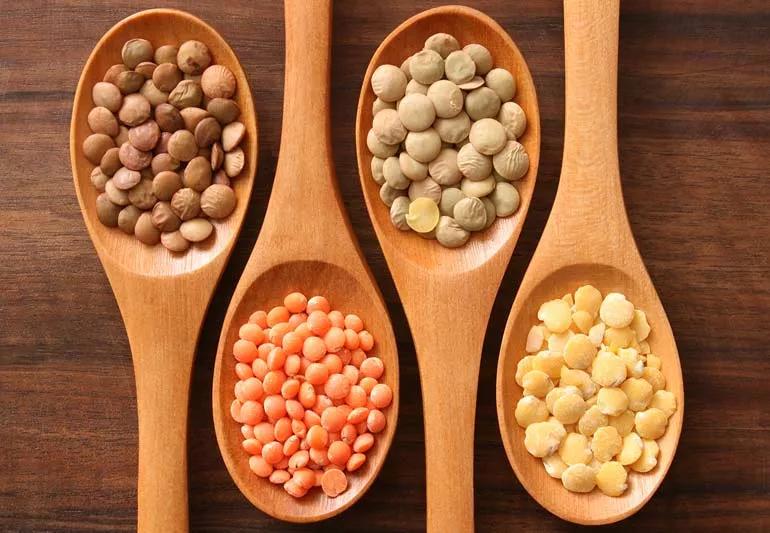
Lentils gained popularity as an affordable meat substitute in the U.S. during World War II. Today, they thrive in kitchens as a nutritious plant-based protein that can suit any cuisine or flavor.
Cleveland Clinic is a non-profit academic medical center. Advertising on our site helps support our mission. We do not endorse non-Cleveland Clinic products or services. Policy
These small, gluten-free legumes pack a healthful punch. Lentils are rich in vitamins, minerals and fiber, without the fat or cholesterol of red meat. If you’re trying to find a quick, nutritious dinner and wondering, “Is lentil soup good for me?” the answer is “yes.” (The only decision is what color lentils to use!)
“Lentils have been around for ages, but it’s taken a while for us to realize how powerful they are for our bodies,” says dietitian Elyse Homan, RD. “They aren’t just a cheap alternative to meat anymore. They can be the foundation for a variety of meals and make a real difference to your health.”
Homan discusses the benefits of lentils and how they can support your health.
Lentils are edible seeds of the legume family. Like beans and peas, they grow in pods. The most common types are:
A little goes a long way when it comes to the health benefits of lentils. One-half cup of cooked lentils contains 140 calories and 12 grams of protein, with:
Lentils are high in protein, which helps build and maintain your muscles, bones and skin. Protein can also help you manage your appetite and support weight loss because it makes you feel fuller than other nutrients.
Among beans, only soybeans have more protein. Eaten with a whole grain, lentils work as the protein equivalent of meat, which is especially helpful if you eat a vegetarian or vegan diet. Lentils are also gluten-free, making them a great option for those with celiac disease.
Homan says that while more research is needed, early evidence is promising and suggests lentils could:
Studies suggest that regularly eating lentils promotes good health and reduces your risk of chronic diseases such as diabetes, obesity, heart disease and cancer, including breast cancer.
The plant-based compounds (polyphenols) in lentils may have especially powerful effects.
Polyphenols may be anti-inflammatory, antioxidant (fight cell damage) and neuroprotective (maintain brain health). Studies also show that lentils may improve cholesterol levels in people with diabetes. And the slow rate at which lentils affect blood sugar levels (meaning lentils have a low glycemic index) also may help you avoid or manage diabetes.
Legumes overall are linked to reduced cancer risk. The fiber in lentils, along with antioxidant properties, may help ward off cell damage and prevent cancer growth.
“We need to know much more about how lentils affect people to draw any definite conclusions,” says Homan. “But we are learning more about the beneficial effects of what they contain, from fiber and vitamins to polyphenols. And it’s clear that people who eat a Mediterranean diet, which includes legumes such as lentils, can have better health outcomes.”
Potassium helps counter the bad effects of salt, which can lead to high blood pressure (hypertension). Half a cup of cooked split red lentils has more than 270 milligrams of potassium.
Their high protein level also makes lentils a great substitute for red meat, which has the bonus of helping you keep your blood pressure under control. A word of caution: Lentils are low in certain essential amino acids, so combine them with whole grains to balance your diet.
Folate protects your heart and supports the formation of red blood cells. It’s especially important for your baby’s development if you’re pregnant. Lentils have plenty of folate, iron and vitamin B1, which also support your heart health.
Lentils may be associated with a lower risk of heart disease, by lowering bad cholesterol and blood pressure. One study found that eating lentils led to greater reductions in blood pressure than eating chickpeas, peas or beans.
If you’re tired, a healthy dose of iron can sometimes put the spring back in your step, especially if you have anemia. Iron makes hemoglobin, a substance in your red blood cells that allows them to carry oxygen to your body.
Half a cup of cooked lentils can provide 15% of your recommended daily iron needs. If you eat a vegan or vegetarian diet, that news may feel like hitting the iron jackpot.
“Combine lentils with a source of vitamin C such as tomatoes, potatoes, bell peppers or Brussels sprouts to enhance the absorption of iron,” Homan recommends.
Lentils are rich in a type of fiber that helps your digestive system work as it should and fuels good bacteria in your gut. Fiber may also help reduce the risk of colorectal cancer.
“Fiber plays an important role in regulating our bowels and protecting the immune system,” says Homan. “Foods that are high in fiber, like lentils, help us stay healthy and active.”
Eat too many lentils, or undercooked lentils, and you may feel the effects — and anyone near you might hear them. Lentils, like some fruits and vegetables, contain fiber that’s difficult for your body to break down. It also helps produce good bacteria in your gut. But too much can cause cramping and gas. To minimize these symptoms, Homan recommends gradually increasing your fiber intake.
Most people can enjoy lentils as part of their regular diet without any concern. But lentils also contain natural compounds called anti-nutrients. These substances bind with nutrients like iron and zinc, making them harder for our bodies to absorb. Soaking and cooking lentils can help reduce this effect.
You may also have a lentil allergy, especially if other legumes such as chickpeas give you an allergic reaction. It’s not so unusual. In parts of Europe, including Spain, lentil allergy is reported to be more common than peanut allergy.
A healthcare provider can help you find out if you have an allergy or food intolerance. If you want to add more lentils to your diet, talk to a provider about any other concerns.
Lentils are simple to prepare and cook. You don’t need to soak dry lentils overnight in water, unlike many other beans. Just rinse them to remove any dirt or debris. Toss any lentils that look rotten or damaged.
You can buy whole lentils with their husks or split with husks removed. You can also find canned lentils.
Red lentils cook quickly, usually in 5 minutes. Other types may need to cook for at least 20 minutes or more, so plan ahead. Put them in a pot covered with about a half-inch of water and bring to a boil. Reduce heat and simmer, uncovered. Check often and add water, if needed.
Try tossing lentils in salads or blending them in soups, sauces or dips. Kick off your lentil-palooza with these flavorful, healthy lentil recipes:
Store dried lentils in a tightly sealed container in a dry, cool location. They generally keep for about one year. After cooking, they’ll keep for about one week. You can also freeze cooked lentils for up to three months.
Lentils are versatile, richly textured legumes that give any meal a boost of nutrition and heartiness. Try them as a substitute for meat or add them to soups and salads. Their high-protein value and many nutrients make them worthy of being a cupboard staple for good health.
Learn more about our editorial process.

There are better breakfast options, but if it’s got to be cereal, look for whole grains, high fiber and no added sugar
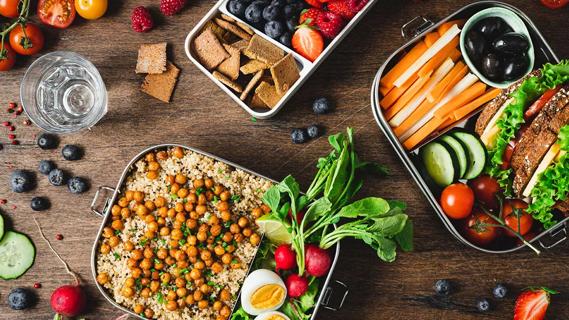
No more scrambling to figure out what to eat during your busy week
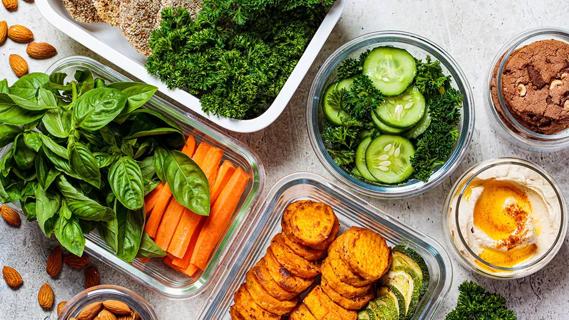
Set yourself up for success by carefully choosing your recipes, storage containers and prepping day
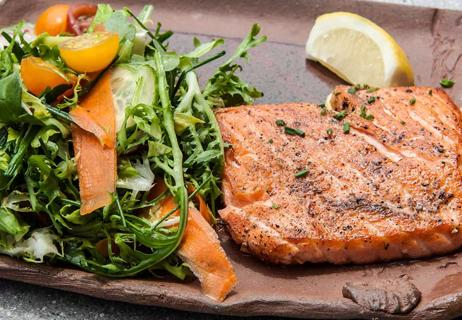
Get lots of fiber, cut back on red meat and limit your alcohol intake

If you don’t have time to DIY, opt for lean cuts of low-sodium deli meat fresh from the counter
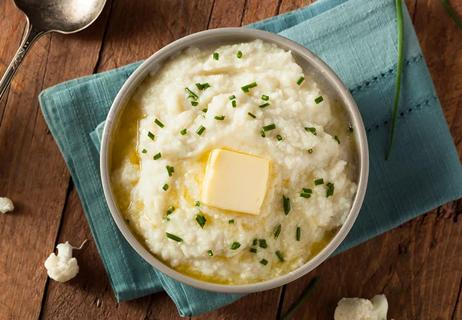
You don’t have to sacrifice your favorite recipes for healthier versions
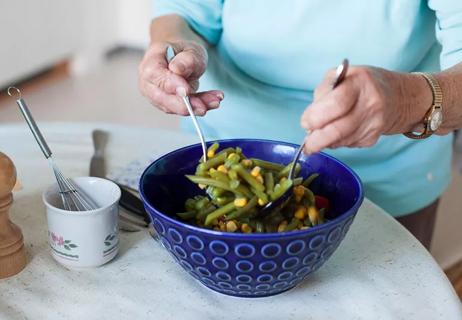
Age-related physical changes and personal circumstances can impact healthy eating
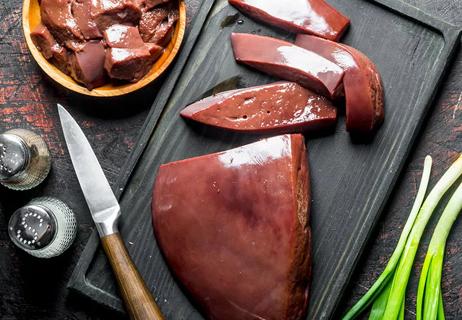
Packed with iron, vitamin A and protein, beef liver provides a healthy low-calorie meat option

Your metabolism may torch 1,300 to 2,000 calories daily with no activity

A gentle touch in all the right places may help drain your sinuses